The city as a place of social diversity is in danger. In Berlin, the growth pressure is particularly evident: a rapid increase in the value of land, increasingly scarce affordable residential space as well as increasing displacement pressure on actors from the fields of art, culture, education, small-scale commerce and social affairs.
As a result of high-profile actions by the Haus der Statistik initiative, a group of committed artists, architects, cultural workers and politicians, the previous plans for selling to investors and the planned demolition were prevented in 2015.
The initiative’s demand to secure the complex in a cost-effective mix of uses as a common good was finally accepted. At the end of 2017, the State of Berlin acquired the site, paving the way for the development of the quarter for the common good.
The existing building and around 65,000 sqm of new construction will provide space for art, culture, social affairs and education, affordable housing as well as a new city hall for the district of Berlin-Mitte and administrative uses.
To achieve this goal, a novel constellation of actors was formed: The "Koop5" consists of the Senate Department for Urban Development, Building and Housing, the District Office Berlin-Mitte, the state-owned companies WBM Wohnungsbaugesellschaft Berlin-Mitte mbH and BIM Berliner Immobilienmanagement GmbH and the ZUsammenKUNFT Berlin eG, which acts as the legal representative of the Haus der Statistik initiative. In this way, civil society knowledge and commitment are coupled with the expertise and scope of action of the administration.
Haus der Statistik is a place for democratic practice: The "Werkstatt" as a center for participation involves people and perspectives in the planning process who would otherwise have little chance of being heard.
Since summer 2019, selected ground floor areas of the existing buildings have been allocated to stakeholders in art, culture, education, social affairs and from the neighbourhoods as part of the so called “pioneer utilisation”. During the next years of construction and planning, these pioneer usages will processually and prototypically test what is later on to become established in the quarter for the long term.
The pioneer users represent the cooperative planning process in practice and actively contribute additional value for urban society, in the way that neighbourhood and city-wide demands are corresponded to on-site at the Haus der Statistik.
The unique feature of the transformation lies in the processual planning based on values committed to the common good and simultaneous openness in the process. Here, especially the early involvement of user groups and the development of context-specific carrier models play a major role in terms of long-term navigability and participation.
As a learning process, the pioneer uses continuously interlink project development, the broad participation of urban society as well as the users’ perspectives. They thus form a key component of cooperative district development, in the context of which both long-term use clusters, transparent organisational and allocation structures, and publicly effective formats are established and continuously developed.
The project illustrates the need of many people to actively and self-determinedly participate in the shaping of their living environments beyond formal participation formats.
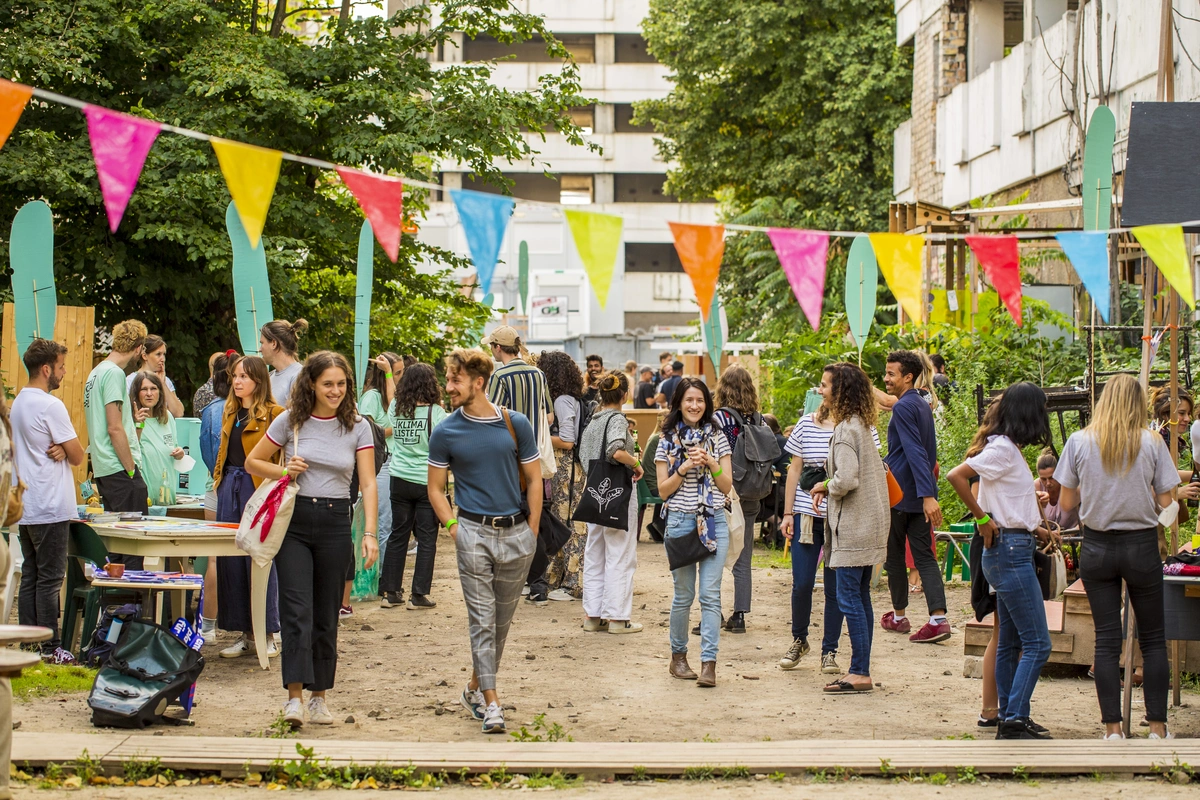
The KO-Market once a month invites the neighbourhood at "Allesandersplatz" [Everything different place] to swapp and exchange. Different resources are traded: Knowledge, goods & emotion. Economic profit plays a secondary role.
Pioneer projects offer workshops, research and experimentation in the field of ecological circular economy and there is always program, live music and fresh food from regional producers.
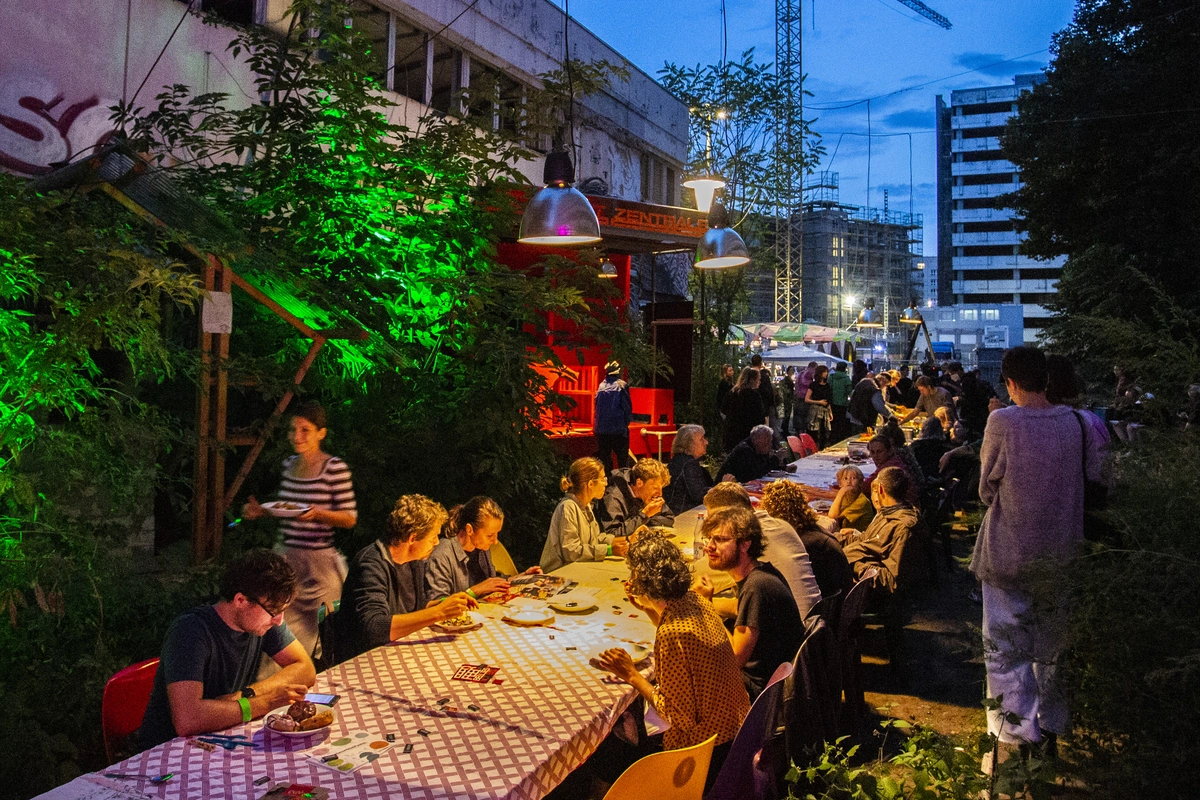
The initiative Haus der Statistik (House of Statistics) has posed election test questions to Berlin's politicians and invited politicians, neighbors, and committed people to debate the future direction of the neighborhood at a long table during a neighborhood policy hearing.
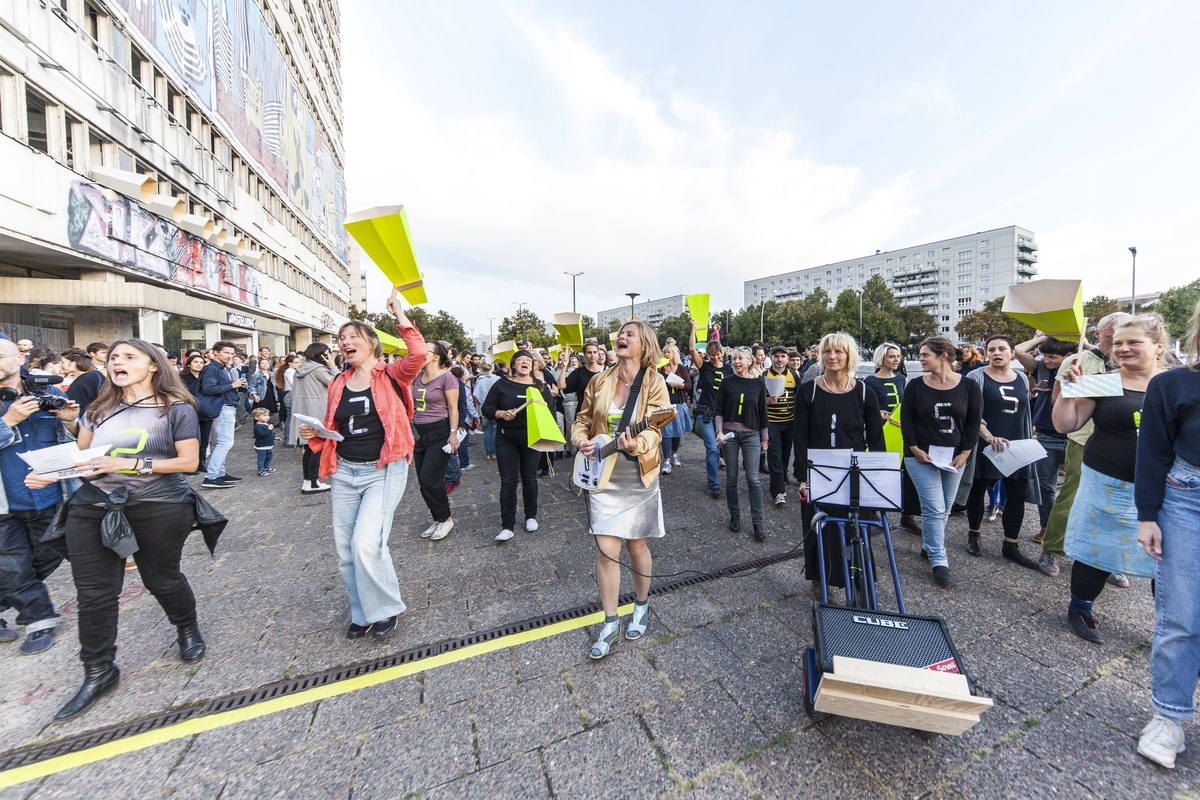
Since 2019, there is the Choir of Statistics under the direction of songwriter and unconditional choir director Bernadette La Hengst. All those interested in singing from the city society and neighborhood can participate. The choir gives an additional voice to the change process around the HdS. Together, the participants sing and write utopian songs about the future of the city, about neighborhood and the neighborhood around the HdS. At the same time, it is an artistic form of addressing urban i
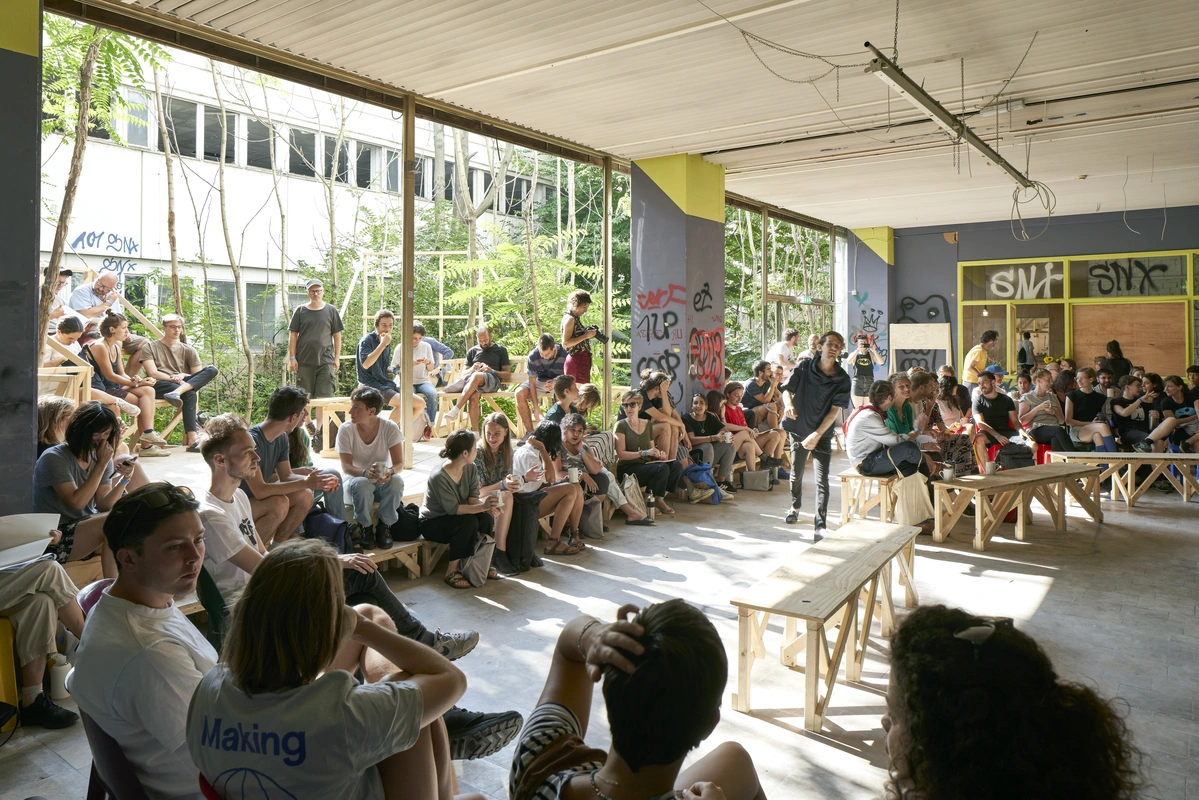
The Making Future Summer Academy explored forms of productive collaboration, exchange, solidarity and life around the House of Statistics.
Making Futures was an action research project that addressed issues of architecture as a collective form and architecture as a resource as an experimental research unit that advances future directions for architectural practice and education.
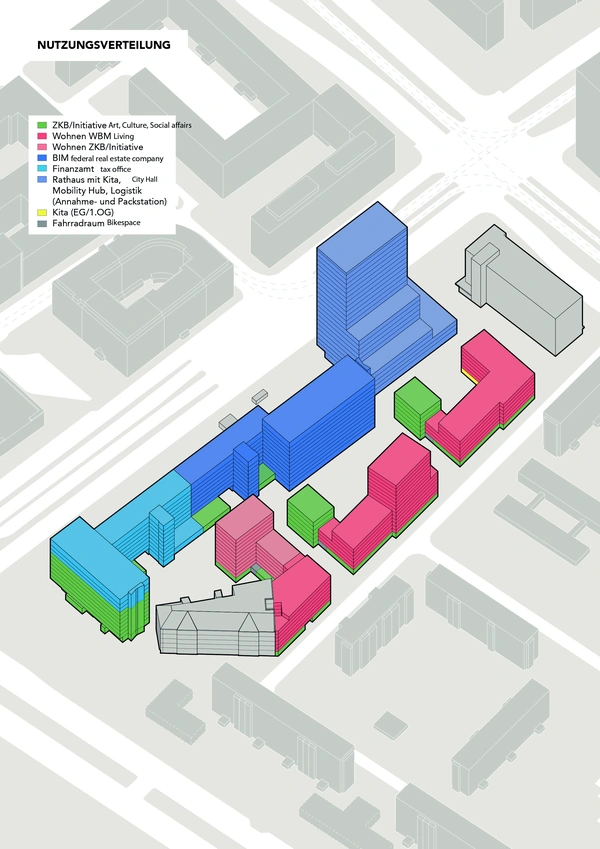
In the existing buildings and through approx. 65,000 m² of new construction, the Haus der Statistik model project will create space for art, culture, social affairs and education, affordable housing and a new city hall for central and administrative uses. Between the buildings, city rooms are being created for community use by the diverse neighborhood. Final decision Urban planning for Teleinternetcafe and Treibhaus landscape architecture with the participation of the interested urban community.
KOOP5 is an innovative and effective constellation of actors consisting of five cooperation partners: Senate for Urban Development, Building and Housing; Housing Administration
Berlin Mitte WBM; Mitte district of Berlin; Federal Real Estate Management Company
and ZUsammenKUNFT Berlin eG - Cooperative for Urban Development
in collaboration with around 60 Pioneerprojects from art, culture, sustainability, circular economy, up-cycling, repair, sharing economy, foodsharing, social affairs, education, urban practice etc.
